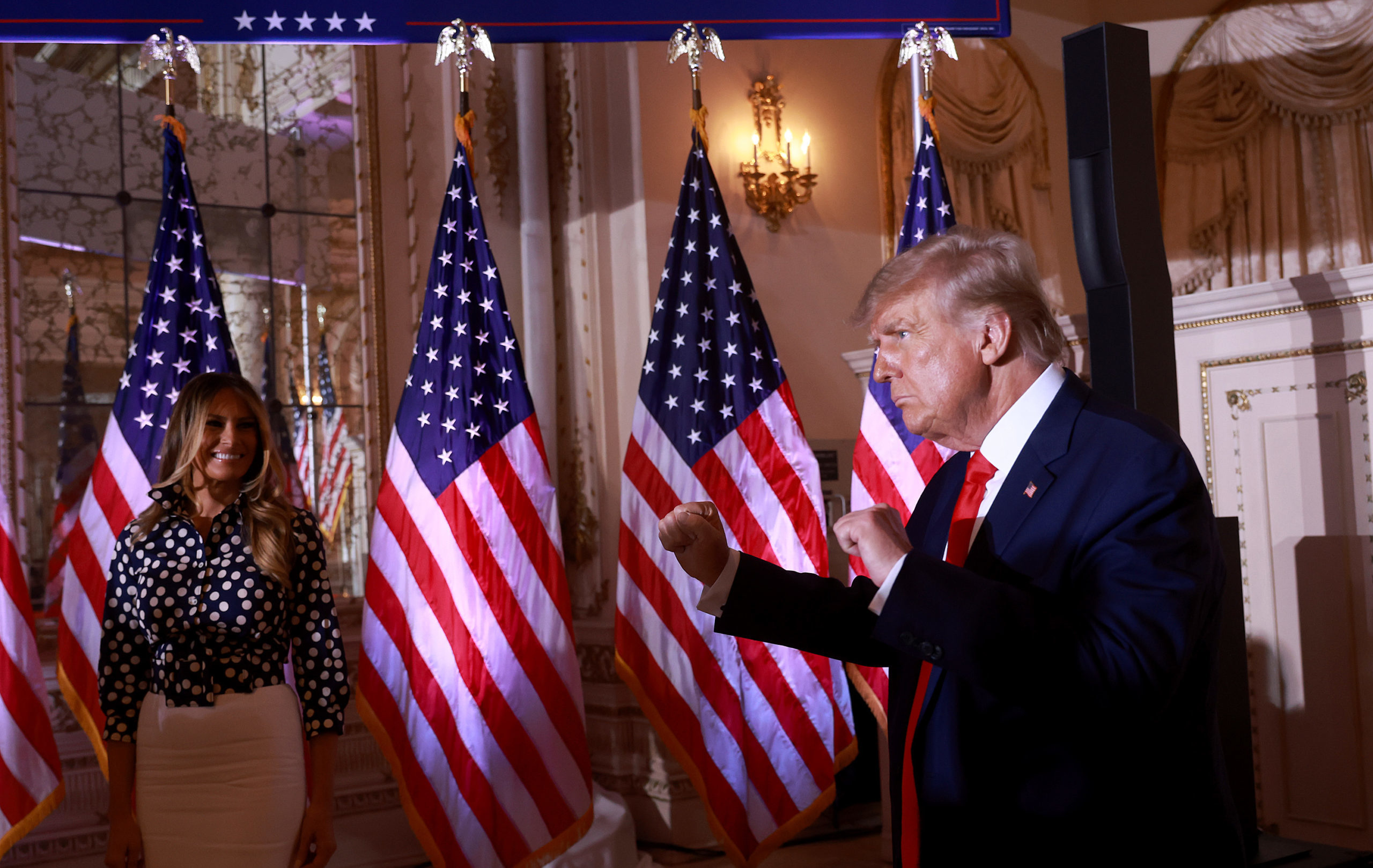Making Trump Poorer Only Makes Him Greater
The media theory that Trump’s fans like him because he’s rich miss the essential appeal of the former president.

Even after two laughable impeachments, four ludicrous criminal prosecutions, and innumerable tendentious conspiracy theories, the recent civil judgments against Donald Trump still shock the conscience.
The amounts Trump has been told to fork over—$83 million in the E. Jean Carroll case, $355 million in the inflated assets case, plus untold interest—are preposterously, cartoonishly, even contemptibly large. They reveal a lawfare apparatus so resolute in destroying the former president that it has come to treat astronomical sums as no different than Monopoly money. This impression was only underscored by comments given to ABC News by unbelievably supercilious New York attorney general Letitia James: “We will ask the judge to seize his assets,” James said—as though Trump Tower was a tiny plastic hotel on the game board.
Trump’s adversaries may have reached an apex of irrationality in these latest cases, but the larger strategy of making Trump poor—or, at least, appear poorer than he is—can be traced to the earliest days of the 2016 Republican presidential primary season. Remember the New York Times’ endless speculation about then-candidate Trump’s actual net worth? Or the time Fox News’ Chris Wallace hectored Trump over his four business bankruptcies?
These and other anti-Trump forces imagined that the future president’s appeal was somehow tied to his financial standing. The thinking went like this: if that standing could be diminished—first in perception, now in reality—then his popularity with voters could be diminished, too. In their ignorance of what motivates his supporters, the elites seem to have assumed that the MAGA constituency confessed belief in the “prosperity gospel,” the pernicious, indeed blasphemous belief system suggesting that God’s blessings can be gauged in material wealth.
In fact, this analysis completely misunderstands Trump’s appeal, which, as the elites know, has a particular resilience with blue-collar and middle-class Americans. While such voters have an innate sense of fairness—they believe that what Trump earned through his business ventures he should be free to keep—they do not flock to Trump because he is a billionaire.
One of the most devoted Trump fans in my extended family once told me that she felt that the former president was a good Christian man even though he had all that money—the implication being that men who amass great fortunes are normally viewed with some suspicion among religious people. Laying aside the evaluation of Trump’s personal virtues or piety, I think that suspicion is real, and I think the religious are right to be suspicious.
Some of the worst actors on the world stage are indeed the mega-rich who might be said to buy into the prosperity gospel in reverse (and, of course, absent any actual religious character). People like Bill Gates, Mark Zuckerberg, and Jeff Bezos seem to believe that their material wealth confers on them, or at least confirms, their personal virtue and goodness—qualities they are determined to bestow on us, whether we like it or not. We saw a particularly ugly display of something like this mentality when MSNBC’s Rachel Maddow asked E. Jean Carroll what she was going to do with “Trump’s money” and mentioned something about supporting “women’s rights”—as though Trump’s own assets were free to be repurposed to whatever the far Left deems noble.
Ruining the virtue-signaling image Maddow was hoping to convey, Carroll—alas, unable to contain herself—rattled off a shopping list, including new clothes, new shoes, and a penthouse for the preening, contemptible Maddow.
Who, then, is more obsessed with money—Trump or his adversaries?
Subscribe Today
Get daily emails in your inbox
If the jury and the judge in the recent Trump civil cases feel that wiping out the former president’s bank account will render him less appealing to his supporters, they ought to think again. His constituency is all too familiar with how financially ruinous interactions with the legal system or government agencies can be. Many ordinary Americans will view the verdicts against Trump as akin to the time when they went through an unfair IRS audit or when their small business was targeted in a frivolous lawsuit. Few can relate to the scale of the verdicts against Trump, but many can comprehend the feeling of one’s financial house being besieged.
And for all of Trump’s boasting about all the money he’s made in his life, the man himself seems to be tolerating its imperilment with remarkable resilience and even grace. During a Fox town hall with Laura Ingraham, Trump was asked about the inflated assets case. Of course, he sounded off against the judge and the attorney general and defended his position, but he did not sound like someone greatly troubled by hundreds of millions of dollars in fines hanging over his head. He invoked Alexei Navalny—implying that both were figures targeted by the ruling class—and cited the Eighth Amendment. Amazingly, Trump has, amid his persecution, found higher values than pure and simple money.
If $355 million—plus interest!—is the price he must pay for running for president and winning, Trump appears willing to accept that price. And his supporters will rightly reward him for it. They know what it’s like to be in a financial jam, but they love, honor, and protect their country all the same—just as the next president does.